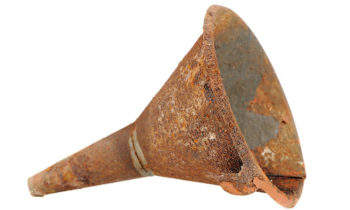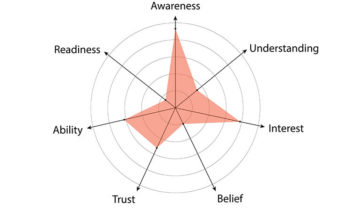How Selling Expert Services is Like a Game of Baseball

Wrigley Field
Matt Ulrich loved living in the shadow of Wrigley Field. “With eighty-one home games, it always smelled like popcorn and hot dogs. I loved that. On game day, you’d hear the bucket boys playing five-gallon drums for tips and neighbors hawking their parking spots to the highest bidder. It was like a carnival all the time.” A former professional football player, Matt confesses he finds the actual game of baseball a little slow. “I’m just saying…,” he says with a boyish grin. “But that’s why it was so great to live next to Wrigley. I’d turn on the TV and, with the seven-second broadcast delay, the crowd would tell me when to pay attention to the game. Thirty-thousand people would explode, I’d set down what I was doing, look up at the screen and catch every big play.”
Rounding the Bases
Matt tracks business development like it’s baseball. “The game is pretty simple. You’re at bat and the trick is to round the bases. Think of BD baseball as a series of bases you are trying to cross.”
Home plate—You’re ready but haven’t done much to make new friends.
First base—You’ve had the first call, and you’ve been introduced.
Second base—You’ve begun to understand the challenges of the people you are trying to help.
Third base—You’ve scoped a project and made a proposal on how you can help.
Home run—You’ve overcome outside factors like timing, budgets and stakeholder buy-in and work is sold.
Main Takeaways
I love the simple elegance of this model. Who can’t relate to pushing from first to second? Here are my main takeaways after talking with Matt:
- A series of singles: Matt says the single biggest mistake he sees in would-be business developers is they get up to bat and want to hit it out of the park when the surer strategy is to systematically load the bases, advance prospects from one base to another, and work runners in one play at a time. When it comes to building the relationships off of which expert services are sold, patience is a virtue.
- Keep score: Good business developers track what they do. If you are reaching out diligently, trying to make new friends, the details of any given relationship quickly outstrip your brain’s ability to remember them. That’s where putting outreach into buckets helps. It also helps in directing your attention to where it is best put to use. “I’ve got five relationships on third base, fifteen on second, but only one on first. I need to get back out there and introduce myself to people I don’t now know.”
- Leadoff of second: Align your tactics with the relative maturity of a relationship. If you meet someone for the first time, it is probably too soon to offer to fly across the country and present to their board. Better to set up a thirty-minute introductory call. If you have had several good substantive conversations with someone inside of an organization, it is okay to say, “Who else in the organization should I be speaking with?”
- Rounding the bases: Good business developers are not only digging hard to get to first or second but are also, eyes up, looking and thinking about how to get to the next base. If you had a great initial call, do you end the call by saying, “It was nice to meet you. Thank you for your time. Give us a call if we can ever be of assistance.”? Or, are you saying, “It was great to meet you. Maybe by way of a next step, I’ll send you a couple of case studies of work we have done. Why don’t look at them and let’s chat again in two weeks. What would be a good day to connect?”




